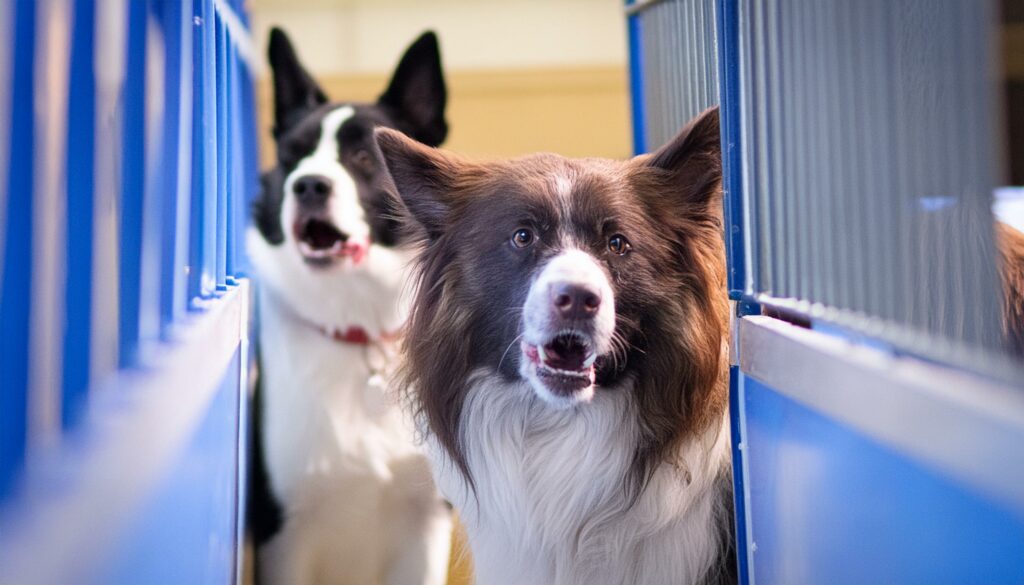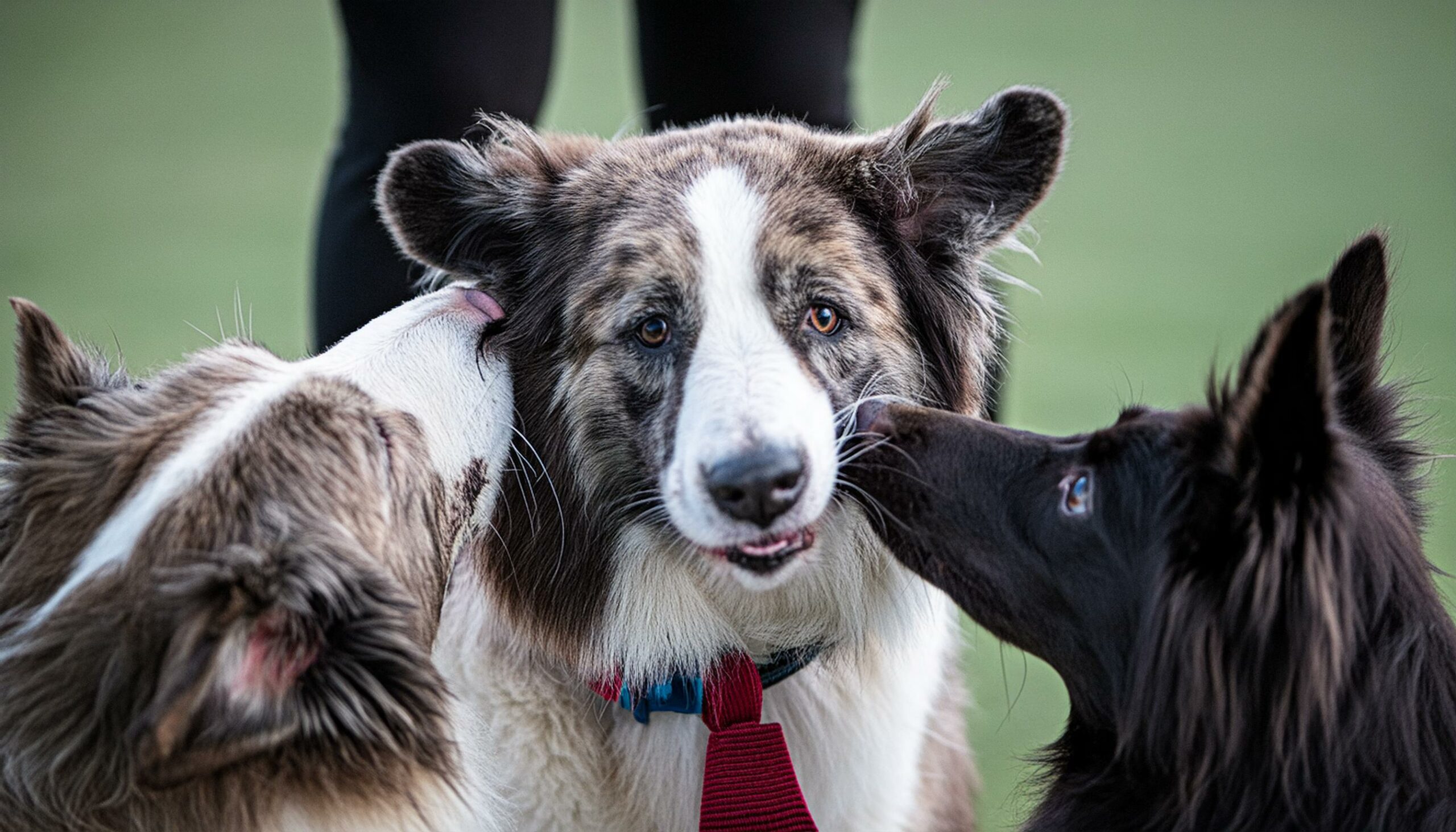Border Collies are a breed of dog known for their exceptional intelligence, agility, and intense work ethic. Originally bred for herding livestock, they have become popular pets due to their remarkable trainability and unwavering loyalty. Border Collies are highly energetic and require mental and physical stimulation to thrive. Understanding their emotional needs is essential for providing them with proper care and ensuring their well-being.
Understanding Canine Emotions
Do dogs cry like humans?
The concept of dogs shedding tears like humans is a topic of interest and debate among pet owners. While humans often associate tears with emotions such as sadness or joy, dogs communicate their feelings primarily through body language, vocalizations, and behavior. While dogs may not cry tears of emotion in the same way humans do, they are undoubtedly capable of experiencing a wide range of emotions, including happiness, fear, anxiety, and sadness.
Do Border Collies Cry?
Observations and anecdotes
Many Border Collie owners have reported instances where their dogs exhibit behaviors that resemble crying. These behaviors may include whining, whimpering, or seeking attention from their owners when distressed or anxious. While these actions may appear similar to crying, it’s essential to understand that dogs express emotions differently from humans.
Scientific perspective on canine emotions
Scientific research on whether dogs cry like humans remains inconclusive. While dogs do have tear ducts that serve the purpose of lubricating their eyes and removing debris, tears shed in response to emotional stimuli are not well-documented in scientific literature. However, this does not diminish the validity of the emotional experiences of dogs. Border Collies, with their high level of intelligence and emotional sensitivity, may exhibit behaviors that seem like crying as a means of communication or seeking comfort from their owners.
Signs of Emotional Distress in Border Collies
Behavioral cues indicating distress
Border Collies, like all dogs, display various behavioral cues when experiencing emotional distress. These may include excessive barking, pacing, trembling, or withdrawal from social interaction. Recognizing these signs is crucial for understanding your dog’s emotional state and addressing their needs effectively.
Common triggers for emotional response
Several factors can trigger emotional responses in Border Collies, including changes in routine, loud noises, separation from their owners, or encounters with unfamiliar animals or environments. It’s essential to identify these triggers and provide appropriate support and comfort to your dog during times of distress.
Reasons Behind Border Collies’ Tears
Physical reasons for tear production
Tears play a vital role in maintaining the health and lubrication of a dog’s eyes. Factors such as allergies, eye infections, or foreign objects can lead to increased tear production in Border Collies. While these tears serve a physiological purpose, they are not necessarily indicative of emotional distress.
Psychological factors influencing tears
While dogs may not shed tears in response to emotional stimuli like humans, they are sensitive creatures capable of experiencing a range of emotions. Border Collies, in particular, are known for their strong bond with their owners and may exhibit behaviors that appear similar to crying when seeking comfort or attention.
How to Comfort a Distressed Border Collie
Establishing trust and security
Creating a safe and nurturing environment is essential for comforting a distressed Border Collie. Offering reassurance through gentle words, soothing touches, and familiar routines can help alleviate their anxiety and promote feelings of security.
Techniques for soothing a crying dog
Engaging in calming activities such as gentle massage, providing a cozy bed or blanket, or engaging in low-key play can help distract a distressed Border Collie and alleviate their emotional distress. It’s crucial to remain patient and understanding while comforting your dog and to tailor your approach based on their individual needs and preferences.
Building a Strong Bond with Your Border Collie
Importance of understanding your dog’s emotions
Developing a deep understanding of your Border Collie’s emotions is key to fostering a strong bond. Paying attention to their body language, vocalizations, and behavioral cues can provide valuable insights into their emotional state and strengthen your connection.
Activities to strengthen the human-canine relationship
Participating in activities such as obedience training, interactive games, or outdoor adventures can deepen the bond between you and your Border Collie, enhancing mutual trust and communication. Spending quality time together and engaging in positive interactions can strengthen your relationship and promote emotional well-being for both you and your dog.
Recognizing and Addressing Separation Anxiety
Understanding separation anxiety in dogs
Border Collies are known for their strong attachment to their owners, which can sometimes manifest as separation anxiety when left alone. Recognizing the signs of separation anxiety, such as destructive behavior or excessive vocalization, is the first step in addressing this issue.
Strategies for managing and alleviating anxiety
Implementing strategies such as gradual desensitization to being alone, providing interactive toys or puzzles, or enrolling in doggy daycare or hiring a pet sitter can help alleviate separation anxiety and promote emotional well-being in Border Collies. It’s essential to address separation anxiety promptly and effectively to prevent further distress and promote a healthy relationship between you and your dog.
Training Tips for Emotional Well-being
Positive reinforcement techniques
Using positive reinforcement techniques such as praise, treats, or play rewards can encourage desired behaviors and build confidence in Border Collies, contributing to their emotional well-being. Reward-based training methods help strengthen the bond between you and your dog while promoting positive behaviors and reducing stress.
Enrichment activities for mental stimulation
Providing mental stimulation through interactive toys, puzzle games, or training sessions can prevent boredom and promote a sense of fulfillment in Border Collies. Mental stimulation is essential for keeping your dog’s mind active and engaged, reducing the risk of behavioral problems and enhancing their overall well-being.
Seeking Professional Help
When to consult a veterinarian or animal behaviorist
If you suspect that your Border Collie is experiencing persistent emotional distress or behavioral issues, seeking guidance from a veterinarian or certified animal behaviorist is essential. They can provide personalized recommendations and support to address your dog’s needs effectively and ensure their emotional well-being.
Available resources for support and guidance
Numerous resources, including books, online forums, and professional training programs, are available to assist Border Collie owners in understanding and addressing their dog’s emotional well-being. Seeking advice and guidance from experienced professionals can help you navigate challenging situations and provide the best possible care for your beloved pet.
Myth Busting: Misconceptions about Dog Tears

Dispelling common myths surrounding canine emotions
Despite widespread beliefs, dogs do not cry tears of emotion in the same way humans do. Understanding the physiological and behavioral reasons behind canine tear production can help dispel misconceptions and foster a more informed approach to dog ownership.
Clarifying misconceptions about crying behavior
While Border Collies may exhibit behaviors that resemble crying, such as whining or whimpering, these actions are typically expressions of distress, discomfort, or seeking attention rather than tears shed in response to emotional stimuli. It’s essential to recognize these behaviors for what they are and respond to your dog’s needs with empathy and understanding.
Promoting a Healthy Environment for Border Collies
Importance of a balanced diet and regular exercise
Providing a nutritious diet and ample opportunities for physical exercise are fundamental aspects of promoting a healthy lifestyle for Border Collies. A balanced diet and regular exercise not only contribute to physical well-being but also support emotional health and overall happiness.
Creating a safe and comfortable living space
Ensuring that your home environment is safe, comfortable, and free from potential hazards is essential for the well-being of your Border Collie. Providing cozy bedding, designated play areas, and access to fresh water and shelter are simple yet effective ways to create a welcoming space for your pet.
The Power of Empathy in Dog Ownership

Developing empathy towards your pet
Empathy plays a crucial role in fostering a strong bond between humans and their Border Collies. By putting yourself in your dog’s shoes and understanding their needs and emotions, you can establish a deeper connection built on mutual trust and respect.
Mutual benefits of empathy in the human-dog relationship
Embracing empathy in dog ownership not only strengthens the bond between you and your Border Collie but also enhances your own emotional well-being. By empathizing with your pet, you can experience the joy of companionship, shared experiences, and unconditional love that enrich both of your lives.
Case Studies: Real-life Examples of Emotional Connection
Stories of Border Collies and their owners
Countless heartwarming stories exist of the profound emotional connections between Border Collies and their owners. From acts of loyalty and bravery to moments of comfort and companionship, these stories exemplify the deep bond shared between humans and their canine companions.
Demonstrating the depth of emotional bonds
Through shared experiences, mutual understanding, and unwavering support, Border Collies and their owners form bonds that transcend words and gestures. These bonds serve as a testament to the unique and enduring relationship between humans and their beloved pets.
Conclusion
In conclusion, while Border Collies may exhibit behaviors that resemble crying, such as whining or whimpering, their tears are not shed in response to emotional stimuli like humans. Understanding the physiological and behavioral reasons behind canine tear production is essential for providing appropriate care and support for our beloved pets. By fostering empathy, promoting emotional well-being, and strengthening the bond between humans and Border Collies, we can create a fulfilling and enriching relationship built on trust, love, and mutual understanding.
